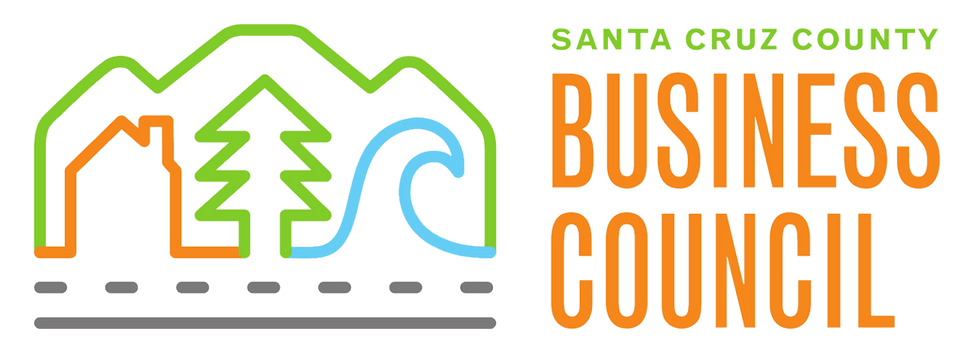Casey Beyer: Driving Toward a Sustainable Future
The following is an Op-ed piece by Business Council Executive Director Casey Beyer regarding transportation funding in Santa Cruz County. The original letter was posted here in the Santa Cruz Sentinel and appeared on October 3rd, 2015.
The Santa Cruz County Business Council is the voice of the business community. Our member companies support economic and community vitality throughout our county by openly engaging with public sector leaders and key community stakeholders through a collaborative process.
Local businesses know that our underperforming transportation system results directly in a loss of economic activity. Our roads are some of the most poorly maintained in the state, affecting a majority of households in our area.
Business Council members cite congestion on Highway 1 as the primary reason for delays in deliveries and commerce. Hospitals and medical groups report serious impact to emergency response times. Employees’ productivity is reduced because of time spent in transit, not to mention the effect on their health and state of mind. Working parents are trapped in traffic jams wasting time and burning gasoline, which in turn generates more greenhouse gas emissions, something our community has collectively pledged to reduce.
We need a more reliable transportation network to move people and goods efficiently. We need to include many modes of transportation to serve a wide range of needs. And our future transportation system must be grounded in sound economics where the best value for our tax dollars is included in the process.
The drive to improve local transportation should unite our community rather than dividing us. After many conversations with a wide spectrum of organizations, including the Sierra Club, Bicycle Santa Cruz, and Friends of the Rail Trail, the Business Council knows we share common goals and a willingness to work together.
Feasibility studies are the starting point to developing solid metrics with clear economic criteria as part of a modern multi-modal transportation future. After much preparation and polling, the Regional Transportation Commission is planning a 2016 transportation measure funding a wide range of transportation options. The Business Council supports this effort, and will be actively working to define the scope and spending priorities of these funds, should the voters approve the new spending plan.
Any funds raised through a collective tax measure should prioritize shovel-ready projects and immediate improvements over larger investments into new systems. As currently proposed, the rail/trail corridor includes both a bicycle/pedestrian path and room for an eventual train. While not exclusive, the development of a multi-modal trail has already generated significant local funding and is better positioned to be implemented first. However, it would be unwise to ignore the potential benefits of the rail corridor as a whole, especially given the newer transportation modalities that could be developed in the future, and the potential for other types of infrastructure that could be developed along that right away, such a fiber optics and additional water carrying capacity. Regardless of the potential for passenger rail we will need additional capital to build a 21st century transportation network, while also responsibly caring the system we have now.
Today, the county’s only real existing transportation route, Highway 1, must be improved to alleviate congestion on that county highway. The public transit system must also meet our most basic needs, ensuring all citizens have some degree of mobility. And all choices must preserve our environment and promote public health. To this end, transportation must be considered a major spending priority, and a unified and balanced ballot measure represents our best path forward.
